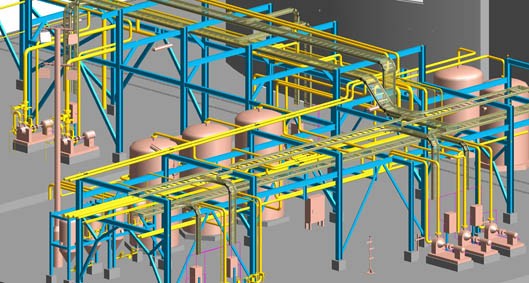The world's energy landscape is continuously evolving, and pipelines play a crucial role in transporting oil, gas, water, and other resources to meet the growing global demand. Pipeline engineering is a dynamic and in-demand field that offers a wealth of opportunities for professionals who possess the right knowledge and skills.
In this article, we'll explore the importance of pipeline engineering courses, the skills they provide, and how they can help you build a promising career in this vital industry.
The Vital Role of Pipeline Engineering
Pipelines are the lifelines of the energy and utilities sector, ensuring the efficient and safe transportation of resources over vast distances. Whether it's oil and gas pipelines, water distribution networks, or even emerging technologies like hydrogen pipelines, pipeline engineers are instrumental in designing, maintaining, and optimizing these systems. Given the critical nature of these infrastructures, there's a growing demand for skilled professionals in the field.
The Importance of Pipeline Engineering Courses
Pipeline engineering is a highly specialized discipline that requires a deep understanding of fluid dynamics, materials science, corrosion prevention, safety standards, and project management. To meet the industry's requirements, aspiring pipeline engineers should consider enrolling in dedicated pipeline engineering courses. Here are several reasons why these courses are crucial:
-
Specialized Knowledge: Pipeline engineering courses provide specialized knowledge that goes beyond what you'd learn in general engineering programs. You'll gain a deep understanding of pipeline design, construction, and maintenance.
-
Regulatory Compliance: Understanding and adhering to industry regulations and safety standards is paramount in pipeline engineering. Courses cover the latest regulations and guidelines to ensure you are well-prepared to meet industry standards.
-
Practical Skills: Courses often include hands-on training, enabling students to work with pipeline design software, conduct inspections, and develop practical skills that are highly valued by employers.
-
Industry Networking: Many pipeline engineering courses are taught by industry experts, providing students with valuable networking opportunities. These connections can lead to internships, job placements, and mentorship.
-
Career Advancement: With the knowledge and skills gained from pipeline engineering courses, you'll be better equipped to advance your career in the energy, utilities, or oil and gas sectors. Whether you're starting out or seeking career progression, these courses can be the stepping stone to success.
Key Skills Gained
Pipeline engineering courses cover a range of essential skills, including:
-
Pipeline Design: Understanding the principles of designing pipelines, considering factors like fluid flow, materials, and environmental conditions.
-
Safety and Risk Management: Learning how to identify and mitigate potential risks and ensure the safety of pipeline operations.
-
Corrosion Prevention: Developing expertise in protecting pipelines from corrosion, a critical aspect of maintenance and longevity.
-
Project Management: Acquiring project management skills to oversee pipeline construction, maintenance, and rehabilitation projects efficiently.
-
Environmental Impact Assessment: Assessing the environmental impact of pipeline projects and implementing sustainable solutions.
-
Inspection and Maintenance: Learning the techniques and tools for inspecting and maintaining pipelines to ensure their continued functionality and safety.
Career Opportunities
With the skills acquired through pipeline engineering courses, you can pursue various career paths, including:
- Pipeline Engineer
- Pipeline Inspector
- Pipeline Designer
- Project Manager
- Corrosion Specialist
- Safety and Compliance Officer
- Research and Development in Pipeline Technology
Conclusion
As the demand for energy and resource transportation continues to grow, the field of pipeline engineering offers promising career prospects. To excel in this industry, consider enrolling in pipeline engineering courses that provide specialized knowledge, practical skills, and industry insights. A career in pipeline engineering promises not only stability but also the opportunity to contribute to the vital infrastructure that fuels our modern world. Whether you are just starting your journey or seeking to advance in your career, pipeline engineering courses can be the key to a successful and rewarding future in this dynamic field.


No comments yet